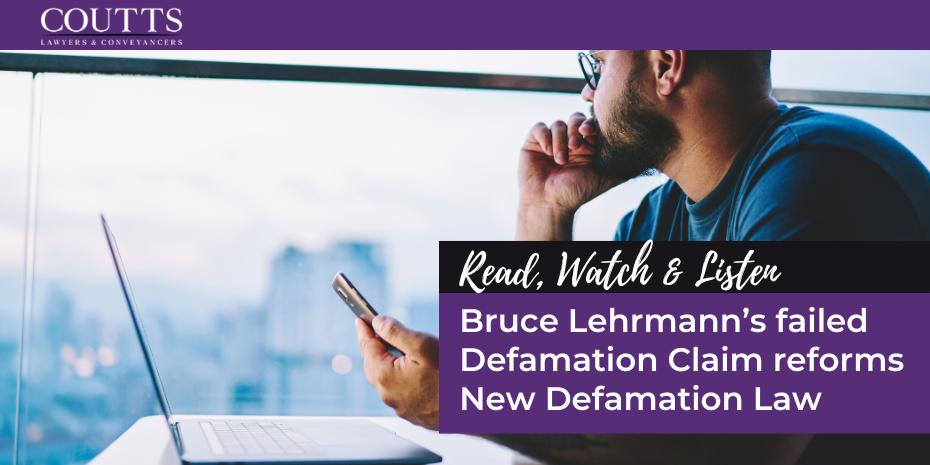KEY TAKE-OUTS
- United Florists Pty Ltd trading as Lily’s Florists and Elysium Marketing Pty Ltd has been investigated for misleading and deceptive conduct.
- Misleading and deceptive conduct can lead to significant penalties for individuals and corporations.
- It is important that consumers and businesses alike understand what could be considered misleading and deceptive.
In December 2022, the ACCC investigated United Florists Pty Ltd trading as Lily’s Florists and Elysium Marketing Pty Ltd for expressions on their webpage.
The florist made representations on their webpage that they were a local florist and had a physical presence in a particular suburb. This was not true, as Lily’s Florist operated as an online florist only. The ACCC Commissioner, Liza Carver noted that “United Florists represented that Lily’s Florist was a local business when, in fact, it offered products nationally using a network of independent florists to fill orders, which were sometimes located a considerable distance from where the webpages represented they were based.”
United Florists used more than 1,500 different web pages and Google ads to advertise themselves as local in more than 1,000 Australian suburbs. However, the outsourcing model used by United Florists meant that the orders to United Florists were filled by local third-party florists, despite the claims made by United Florists to give the impression that customers were dealing with local businesses directly.
Following the investigation, ACCC Commissioner, Liza Carver cautions that “Businesses seeking to boost their online presence by targeting particular locations in their marketing strategy must be transparent about how their business operates and where they are actually located.”
As a result of their misleading and deceptive conduct, United Florists have provided a court enforceable undertaking/promise to:
- Not make a ‘local florist’ representation for a period of 3 years; and
- Implement and maintain a compliance training program for at least 3 years, which includes training on the Australian Consumer Law and the development of a complaint handling system.
The Australian Consumer Law
The Australian Consumer Law (“ACL”) sets out the basic rights of consumers when purchasing goods and services in Australia. One aspect of the ACL is to help prevent businesses from misleading, deceiving and confusing consumers.
Misleading and Deceptive Conduct
Section 18 of the ACL notes that a person must not engage in conduct that is likely to mislead or deceive. It is important to note that misleading and deceptive conduct does not need to result in a loss suffered from the conduct and there is no intentional element. As such, misleading and deceptive conduct simply, and at face value, is conduct that is likely to create a false impression to consumers.
The penalties for misleading and deceptive conduct can be substantial where individuals can be penalised up to a maximum of $500,000.00 and corporations can be penalised up to a maximum of the greater of $10 million, 3 times the value of any benefit received, or 10% of annual turnover (if the Court cannot determine benefit).
In proving that conduct was misleading and deceptive it is important to note that:
- The conduct must have occurred at the time. For example, in the event that a promise is made about a future event occurring, the person making the promise must have reasonable grounds to believe that the future event would occur. This would not amount to misleading and deceptive conduct.
- Saying nothing can also lead to misleading and deceptive conduct. For example, if a business fails to alert a consumer about a fact known to them or that should be reasonably known to them, then this could amount to misleading and deceptive conduct.
Examples of misleading and deceptive conduct
We explore below some simple examples of misleading and deceptive conduct:
Example: A jewellery shop is selling watches. One particular watch is marked on sale for $300 down from $600. The watch was never originally $600. This would amount to misleading and deceptive conduct.
Example: A customer wants to buy a phone charger. The customer tells the shop assistant what type of phone they have and the shop assistant recommends a type of phone charger. The customer purchases this charger only to find that it is not compatible with their phone. This would amount to misleading and deceptive conduct.
Example: A consumer wants to buy a pan for the purpose of making sure their eggs don’t stick to the pan. They speak to the sales assistant who knows that the pan the consumer wants to buy is not suitable but decides to stay silent. The consumer purchases the pan only to find that their eggs stick to the pan. This would amount to misleading and deceptive conduct.
Examples that do not amount to misleading and deceptive conduct
We explore below some simple examples that do not amount to misleading and deceptive conduct:
Example: A coffee shop that advertises it’s coffee as the “best coffee in the world”. This is a clear exaggeration and is generally considered not to be misleading and deceptive.
Example: A sales assistant is told by a manufacturer that a car will be suitable to travel up to 200km/hr. On the sale of the car, the sales assistant tells the consumer that the manufacturer says that the car is suitable for that speed. The car is not suitable for that speed. This is not generally considered misleading and deceptive conduct as the sales assistant was acting in reliance on the information provided by the manufacturer.
Preventing Misleading and Deceptive Conduct
The ACCC, being the consumer watchdog, explains that businesses must review their advertising and practices to ensure that they do not confuse or mislead consumers.
Here are some key ways to evaluate advertising and conduct to ensure it is not misleading consumers:
- Consider whether the overall impression of the conduct or advertisement is false.
- Know your audience – knowing your audience will help businesses have insight as to whether their conduct and/or advertising will confuse or mislead.
If you own a business and are concerned about your practices and advertising, the Commercial Law and Litigation Team at Coutts can assist you to review your business and minimise the risk of a claim against your business for misleading and deceptive conduct.
For further information please don’t hesitate to contact:
Contact Coutts today.
This blog is merely general and non-specific information on the subject matter and is not and should not be considered or relied on as legal advice. Coutts is not responsible for any cost, expense, loss or liability whatsoever to this blog, including all or any reliance on this blog or use or application of this blog by you.



